
Books
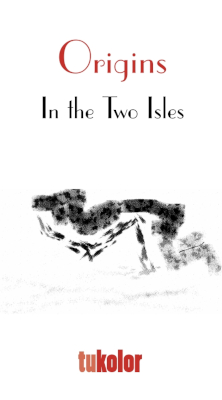
Origins In The Two Isles
An examination of the oldest known inhabitants of Britain, the Irish and British.
Read|
'Origins in the Two Isles' is an examination of where the Irish and British people 'come from'. These are the earliest peoples of the islands who can be named. They each spoke a Celtic language derived from Indo-European, itself probably spoken on the steppe-lands of the Pontic-Caspian area somewhere around 4,000 BCE. Archaeology determines that the Indo-European people were herders (of cattle, sheep and goats and horses, the last of which they first domesticated). These herders are a key part of the story. Then there are the farmers. Farming was brought to Europe by colonists from Turkey who moved into Greece and thereafter along both the Mediterranean coast and up into Central Europe. These two groups of farmers reached France at about the same time and the Two Isles were colonised by farmers from France and the Low Countries. These farmers are important to the story too. The part of the past this book tells of inhabits two worlds. First there is the world of words, then secondly the world of things. It is at the point these two worlds intersect we encounter the Irish and the British, where we find them both well-established in the Two Isles at this threshold between Prehistory and History. The book examines this intersection of word and things from two viewpoints. We begin with the farmers and herders in the world of things and work forwards from Old Europe and the steppes. We then move to the world of words and use these words - these legends and myths and also the bare bones of history from the time of Hengist and Horsa and Arthur and Níall of the Nine Hostages - to light our way back to the dingy world of things. The two worlds do approximately meet. By 1000 BCE, archaeology reveals a culture that - even if we cannot prove what language it spoke - is Irish in spirit. The world of words takes us back to about 550 BCE, which is when the islands of 'Hibernia' and 'Albion' are first mentioned. Who then were the British, the Irish? How related to the herders, the farmers? This book is my attempt answer these difficult questions. It is, I would say, more a book of ideas than fact, but even if ideas are vapour stood against solid facts, what are facts without ideas? |
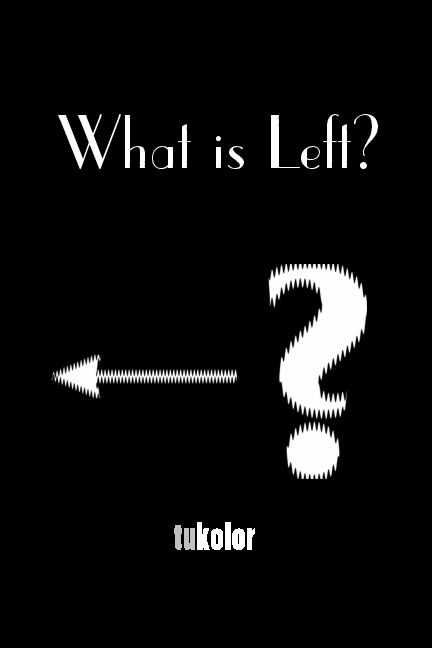
|
'What is Left?' asks for a new counterculture to the invisible twins of neoliberalism and neoconservatism that, it argues, are a danger to us all. Hidden behind the 'free market' and capitalism, neoliberalism is in fact a political and not an economic movement. It has led to what I term an 'oikocracy' that has effectively replaced anything resembling democracy. Oikocracy is government for the economy not the people. Only neoliberal political parties now exist but these are closely connected to networks of power not just outside government but also the state itself. With corporations and government merely two nodes in the same network of power, neoliberalism is far beyond the reach of the people. It cannot be voted out. Neoconservatism is worse and has over the last decade been taking over from neoliberalism. The neocon 'party' is essentially American but it hides behind ideas such as 'the West' and especially 'the international community'. In Europe its powerbase is NATO and more or less all European leaders are now little more than NATO branch managers. The basic aim of the neocons appears to be to create what can be thought of a Civil War of the world in order to maintain US hegemony over the globe. Despite this, the neoliberal world still flourishes in modified form. Just as nature can be thought of as Gaia, the global economy is Mammon. The limited resources of Gaia have been relentlessly attacked by Mammon over the past fifty years or so. But Mammon not only is weaker than Gaia, it cannot live without Gaia. If Gaia dies, so does Mammon. 'What is Left?' argues that humanity has reached a threshold that it must cross in order to survive. It cannot survive if it is ruled by sociopaths willing to risk - rather incite - nuclear annihilation, as the necons are currently doing. The threat of neoliberalism is hardly less desperate, for here the danger is economic breakdown amid the collapse of nature itself. To cross the threshold, humanity simply must reform its political systems and its social values. In the first place, to survive; then having survived, to improve. This is to be what is left. But to achieve this is to first realise that there is a problem and then to identify and understand it. To do this is to 'reunderstand' the world, to reunderstand for example politics itself, that politics is not 'Political Parties' any more. As politics is redefined, so too must notions of 'left' and 'right'. That is the core of 'What is Left?'. Just what is it? What is it to become? The answer offered here is a new counterculture, but such a thing does not yet exist. It is a nothing that must become a something in order that humanity can cross the threshold and live safely. If we cannot answer the political question what is left? we will likely be faced with the existential question of what is left? and the answer to that - even if we are still alive to answer it - will be 'nothing'. |
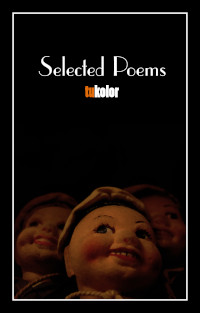
|
This selection of my poetry spans the years from 2000 to 2025 in sequential order of date-written. The poems are to my mind modern, but I don't think they will seem modern. They are simply most often not set and situated in the here and now. But I think they have a modern sensibility. The same themes reappear in the poems. Time and time again, for one. The meaning of the moment. Youth, and age, and time, and time, again. I believe, probably wrongly, that poetry can escape time, leak out of it. These are the poems I have marshalled to leak out the wormhole of poetry, if they can. |
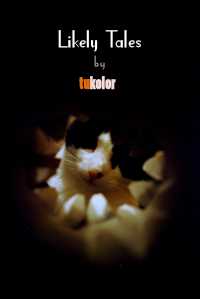
|
Have you ever heard about a thing so implausible it seemed likely true? A likely tale! So here is a book of likely tales. None of them ever happened, or ever will happen, or are ever likely to happen. They are, after all, likely tales. It is likely that each tale must end, but equally likely that will not be an end of it. A likely tale is not a predictable path. In a likely tale you expect the unexpected yet are even so surprised. That I am afraid is all I can likely tell you about the tales in this book. If you want to know more, you will have to read them. After you have read them though, you will likely know less. For that is the law of likely tales. |
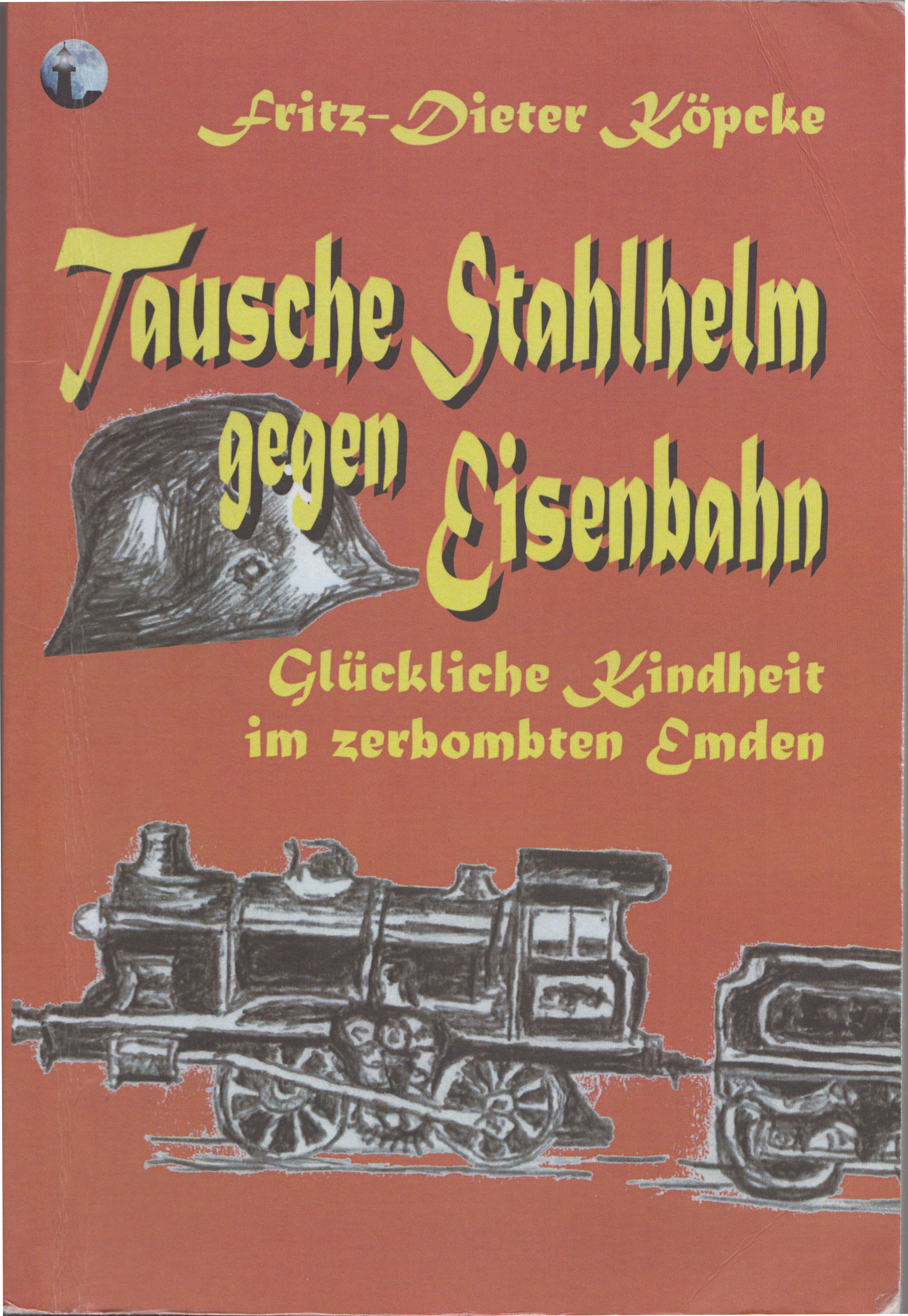
Stahlhelms For Locos
'Tausche Stahlhelm gegen Eisenbahn' by Fritz-Dieter Köpfke, partially translated from the German.
Read|
This is a partial translation of 'Tausche Stahlhelm gegen Eisenbahn' by Fritz-Dieter Köpfke, a friend of my late father. As the author says, it portrays 'a happy childhood in bombed-out Emden', a town to the north-west of Germany. It is a vivid story of surviving in straitened circumstances, of making the best of it, and in the end the innocence of childhood, of living within 'interesting times' and seeing them through childish eyes. The translation consists of about a quarter of the original book. |
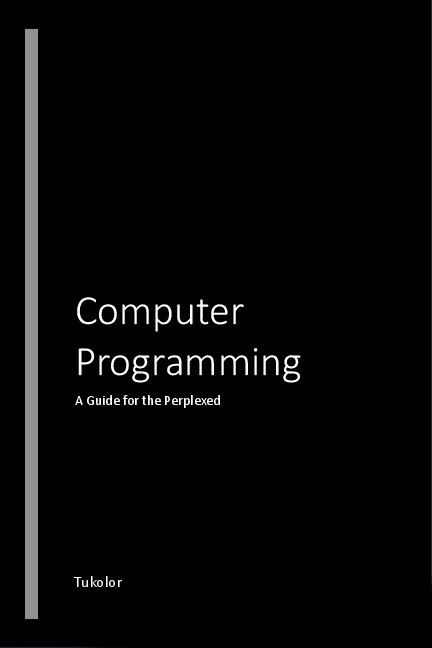
|
From the introduction :- "This is a very short guide to programming. What is programming? it asks and tries to answer. "Before you can learn to program it is at least useful to know what a program is and what a computer is (aside from being a magic box that as you touch it brings to you bright brave new worlds). This is a programming book for someone who has never programmed but who is at least a little interested in what programming is." |